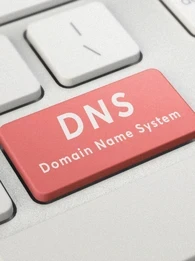With digital threats constantly evolving and becoming more sophisticated, the need for robust cybersecurity measures has never been more critical.
One essential component of any cybersecurity strategy is a reliable firewall. Firewalls act as a barrier between your network and cyber threats, filtering and monitoring data to ensure only authorised users can gain access to your network, systems and assets.
The only problem is the price tag. Your average firewall can set you back between $1,500 and $15,000 for the product cost, installation fee, and subscription, and many organisations need more than one firewall to keep themselves secure.
For those looking to protect themselves without breaking the bank, opting for an open-source firewall can provide a great balance between security, price and customisation.

What are open-source firewalls?
Open-source firewalls are firewalls that are distributed under an open-source license. This means that the source code is freely available for anyone to modify and distribute, making the firewall a more affordable option than its commercial counterpart.
Open-source firewalls are a popular choice for businesses and organizations that need a cost-effective firewall solution. But they’re not just cheap.
They also provide transparency and extensive customisation as their source code is open and accessible to the public. This allows security experts and the community to review the code, identify vulnerabilities, and propose improvements, enhancing the overall security of the firewall.
Open-source firewalls vs commercial firewalls
Open-source firewalls and commercial firewalls both have their own pros and cons that you’ll need to consider when choosing a firewall for your business.
While open-source firewalls save you a significant amount of money, they may require more expertise to install and manage than commercial firewalls. Their commercial counterparts tend to have more features too, such as such as intrusion prevention systems (IPS) or web filtering.
Here are some of the other pros and cons of choosing an open-source firewall over a commercial one:
Pros of open-source firewalls
- Free to use. Open-source firewalls are free to download and use, which can save you a significant amount of money.
- Customisable. The source code of open-source firewalls can be modified to meet the specific needs of your network. This can be helpful for organizations that have unique security requirements.
- Transparent. Open-source firewalls are subject to public scrutiny. This can help to ensure that the software is secure and bug-free.

Rethinking Trust at the Edge
Why protocol-era VPN and IKEv2 assumptions undermine Zero Trust, and what boards should ask about hidden edge dependencies.
Cons of open-source firewalls
- May require more expertise to install and manage. Open-source firewalls may require more expertise to install and manage than commercial firewalls. This is because there may not be as much documentation or support available for open-source firewalls.
- May not have all the features of commercial firewalls. Open-source firewalls may not have all the features of commercial firewalls, such as intrusion prevention systems (IPS) or web filtering.
The best type of firewall for your business will depend on your specific needs and budget. If you are looking for a cost-effective and customizable firewall solution, an open-source firewall may be a good option. If you need a firewall with a lot of features and vendor support, a commercial firewall may be a better choice.
Choosing an open-source firewall
Choosing an open-source firewall for your network can be a daunting task, as there are numerous options available, each with its own strengths and weaknesses.
To make the best decision for your specific needs, it's important to consider several factors:
Inside Modern Network Design
Map the hardware, protocols and topologies that underpin resilient enterprise connectivity, from office LANs to smart city infrastructure.

- Network Size and Complexity. Assess the size and complexity of your network. If you have a small, straightforward network, a lightweight firewall like Shorewall or IPFire might suffice. For larger, more complex networks, consider pfSense or OPNsense, which offer more robust features and scalability.
- Features and Functionality. Determine the specific features you require from your firewall. Do you need intrusion prevention, web filtering, application-level filtering, or other advanced security features? Compare the available features of different open-source firewalls to find the one that best matches your needs.
- Ease of Use and Management. Consider your technical expertise and the resources available for managing the firewall. Some open-source firewalls, like pfSense, have web-based interfaces that make configuration and management easier. Others, like Shorewall, require more command-line knowledge.
- Community and Support. Open-source firewalls often rely on community support and documentation. Check the online forums, wikis, and documentation for the firewalls you're considering to assess the level of support available.
- Security and Updates. Open-source firewalls are generally considered secure due to their transparent nature and public scrutiny. However, it's crucial to ensure the firewall is actively maintained and receives regular security updates.
Best open-source firewalls
There are a variety of different open-source firewalls on the market, each with its own benefits, limitations,and unique set of features.
In this article, we’re counting ten of the best open-source firewalls available today, exploring the capabilities, features customisation options that make them so popular.







Comments ( 0 )